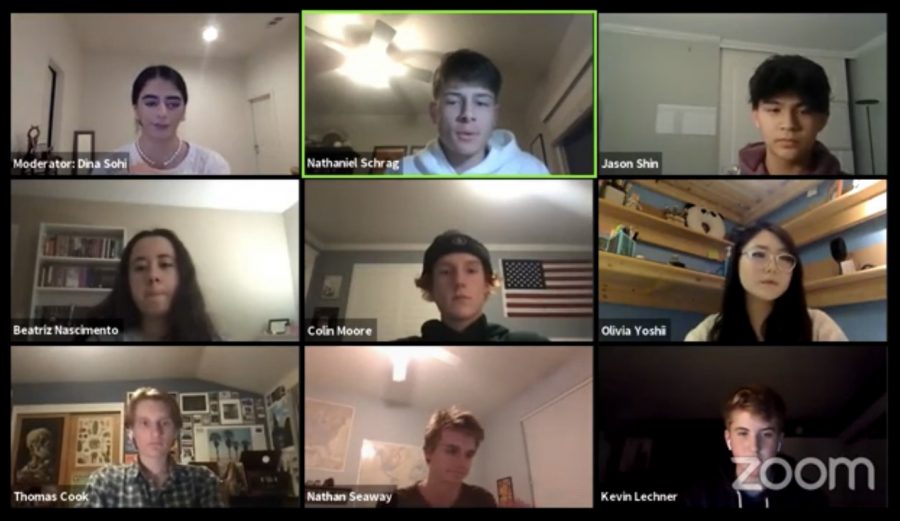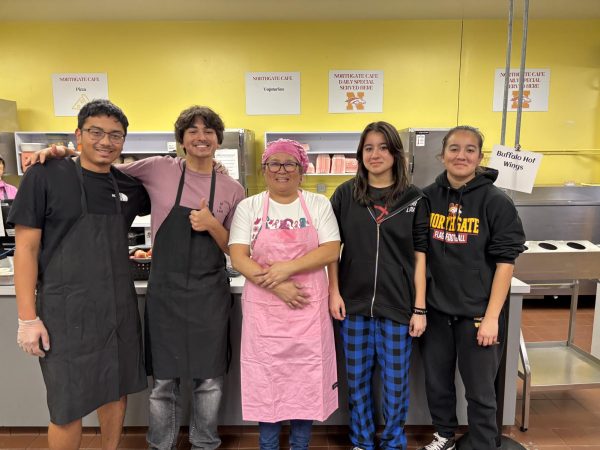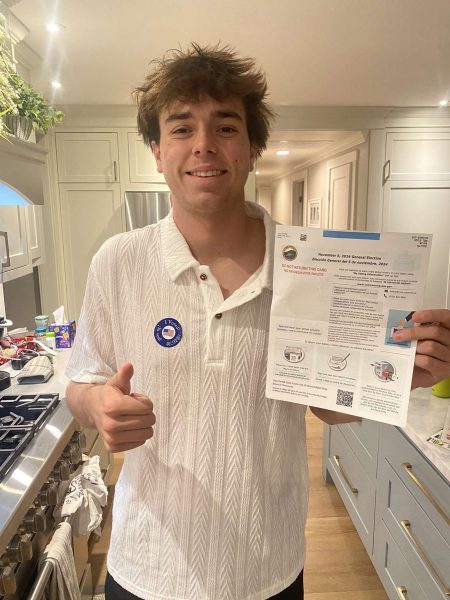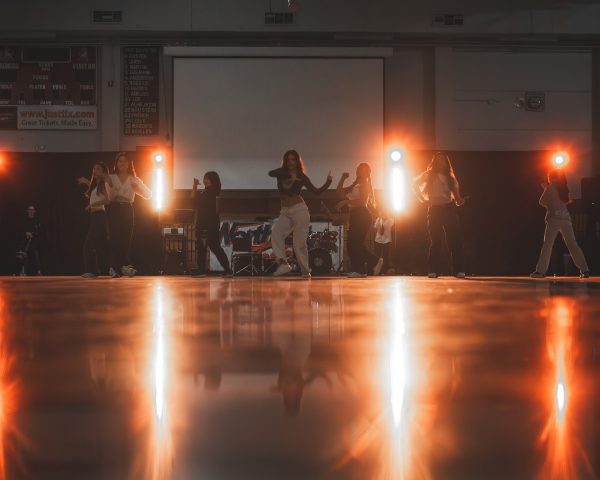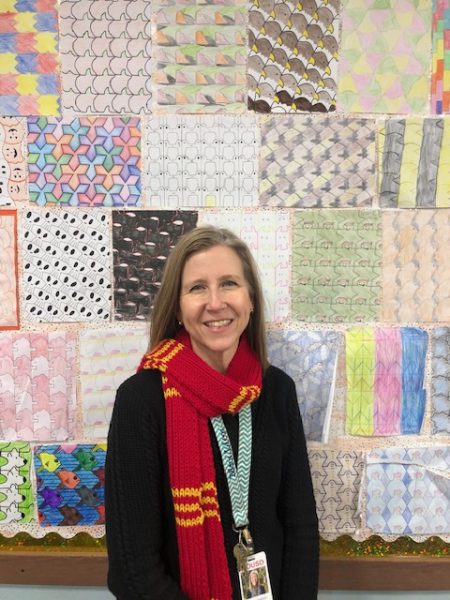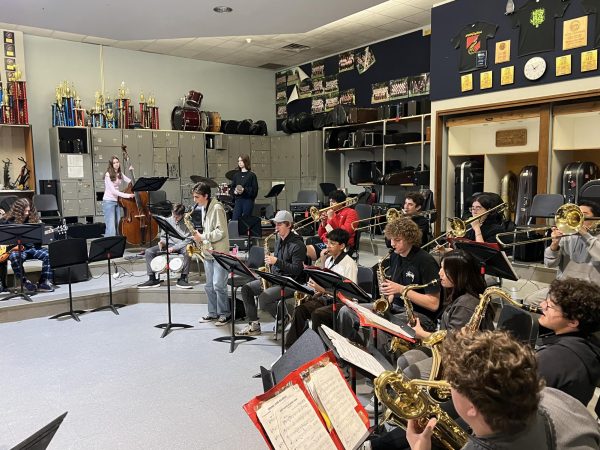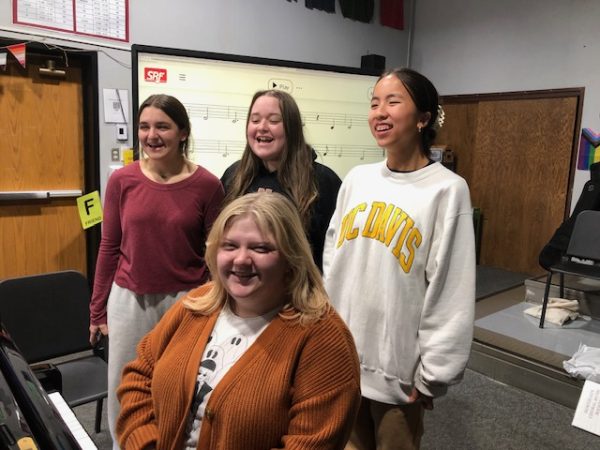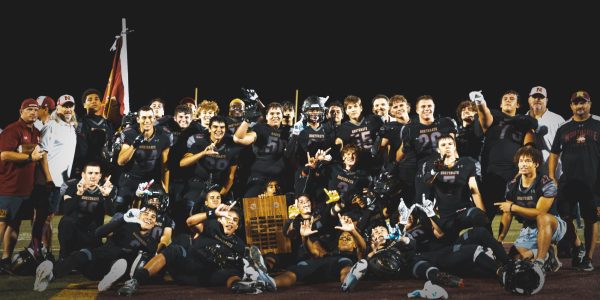East Bay students discuss pandemic challenges of learning virtually – in a virtual forum
Screen grab/East Bay Youth speak
Junior Kevin Lechner and seniors Colin Moore, Nathaniel Schrag, and Olivia Yoshii speak at a February forum hosted by East Bay Youth Speak focused on distance learning’s impacts to mental health and student engagement.
A panel of students from the Mt. Diablo Unified School District and beyond met virtually Feb. 24 to discuss their experiences during the tumultuous time of distance learning. This discussion was hosted by the group East Bay Youth Speak, and is still available on their YouTube channel by the same name.
The speakers hailed from UC-Berkeley, Las Lomas, Clayton Valley, and Northgate. Junior Kevin Lechner and seniors Colin Moore, Nathaniel Schrag, and Olivia Yoshii provided voices for Northgate students. Dina Mirmotalebisohi, a senior at Las Lomas, moderated this panel.
While many expressed differing views on controversial topics such as the economy and reopening the state, all of the participants agreed on one thing: the difficulty of maintaining social connection and a healthy mental state during distance learning.
Conversation touched on many issues and one topic clearly emerged: mental health during distant learning has been a major concern for many. Speakers cited a lack of motivation at school and isolation from their peers as only a few of the consequences distance learning has taken on their mental state.
The challenge between balancing mental health through social interaction and preserving physical health through self-isolation is one students are acutely aware of.
“As we go further into this COVID rabbit hole of increasing depression and anxiety, we’re going to see a huge spike in suicide rates, bigger than what we’re seeing right now… all these heartbreaking stories are going to multiply if we keep worrying about shutting down schools,” remarked Northgate junior Kevin Lechner.
Some of the speakers maintained that the psychological concerns warrant schools reopening as soon as possible, and potentially the whole state. But others, like junior Jason Shin, believe the mortal danger to vulnerable members of the community is more urgent.
“If this whole state reopens, who’s at risk?” asked Shin, a student at Clayton Valley Charter High School, drawing attention to the fact that vulnerable groups are the ones being endangered by these decisions.
As the discussion focused on reopening schools, other members of the discussion remained wary that this decision would not follow through.
“It’s like you’ve not had time to come to grips with the reality because you keep being told that things are going to get better, but then they don’t seem to be [improving],” said Las Lomas senior Nathan Seaway, referring to how often a return to school has been brought up in the past year of distance learning.
Across the Bay Area and beyond, students are facing an unprecedented time of learning virtually, on Zoom or Google Meet calls. While some schools are returning to a schedule with some classes meeting, many in-person classes remain optional for added support. The East Bay Youth Speak panel provided a space for them to share this, with the hope that positive changes will be made in the future regarding the state of education, economy, and mental health.
“I do believe it was an incredibly productive discussion. After the event all the panelists got together and were appreciating the fact that a group of kids on different sides of the political spectrum could sit down and have a civil discussion. We were able to advance on ideas and come to some conclusions,” Northgate senior Nate Schrag said after the forum, reflecting on the positive impact of the panel.
While this discussion gave students an opportunity to speak, not everyone feels that their voices are being heard. Schrag believes his input is not being acknowledged on the issues that affect his class.
“I do not think students’ voices are being listened to… as a senior, I feel incredibly forgotten,” he said.
Northgate opens March 29 to students who choose to attend afternoons, from 1:05 to 3:10 p.m. Schrag said he plans to return. “I think the process [of returning to in-person learning] has moved much too slow…really this process should’ve taken place sooner,” he said.

